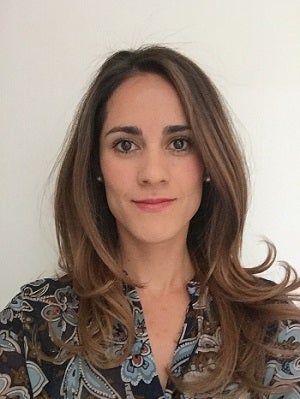
Title: Assistive Technology Consultant
Employer: Teknobility (Mexico)
Year of Graduation: 2012
RESNA Certified ATP: Yes
1. What did you do before enrolling in the Rehabilitation Technology program?
Before I came to Pitt, I received a Bachelor of Science in Biomedical Engineering from the Universidad Iberoamericana in Mexico City in 2007. I worked as a rehabilitation engineer at that same university in the CITeR (Rehabilitation Technology an Engineering Center). I was in charge of customizing wheelchairs to the user’s needs and fabricating custom molded seating systems. After that, I moved to Innovamedica, an R&D company for biomedical devices. At Innovamedica, I was the project manager of different products like an artificial heart.
2. How has your career changed since you graduated from the Rehabilitation Technology program?
I have worked at several different places and eventually started my own company. When I moved back to my country after finalizing my MS at Pitt, I started working as a full-time assistant professor and bioengineering program coordinator at one of the biggest state universities in Mexico, the Autonomous University of the State of Mexico (UAEM). I worked there for three years teaching in three different programs: PT, OT, and Bioengineering. I organized academic events where I tried to introduce the students to the field of Assistive Technology (AT). After the UAEM, I got a job offer from the CRITUSA, the Children’s Rehabilitation Institute of Teleton USA in San Antonio, Texas.I initiated their Assistive Technology efforts and coordinated the Wheelchair and Orthotics Clinics. I worked to get demo equipment not only for mobility but all different types of activities. I helped the rehabilitation staff to find different assistive devices for patients and, in some cases, I also helped find sources of funding. I worked very close to DME suppliers to learn everything about the equipment and then teach the therapists at the CRITUSA.
In 2016, I moved back to my home country and founded Teknobility, an AT consultant and supply company that helps people with disabilities in Mexico to find the most appropriate and affordable AT. I provide training in AT products and services to professionals. I have collaborated with the International Society of Wheelchair Professionals (ISWP) and currently consult for UCP Wheels for Humanity. I am still a lecturer of the Rehabilitation and Assistive Systems class at the UAEM.
3. In your current position, what are your responsibilities?
I advocate for the rights to AT for people with disabilities in my country.
I participate and collaborate in research projects as a research associate analyzing and interpreting data, and making conclusions about the social and economic impact of AT. Our aim is to help the governments of low- and mid-income countries to make decisions about AT that are more cost-efficient and close the gap, so every person with a disability has access to the AT he or she needs.
I do AT evaluations and recommendations along with equipment modifications and fitting. I buy and resell equipment, and make sure it is appropriate for the person using it.
4. Tell us how you feel about what you do?
As an AT professional it has been very hard to work in a country where there is no funding for AT and the government has not understood the process and services needed to provide it. However, it is one of the places where AT is needed the most. Working hard and being able to see that it's possible is very rewarding and I would not change it for anything. I love my job and I love what I do.
